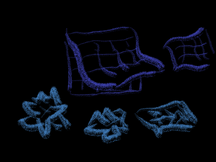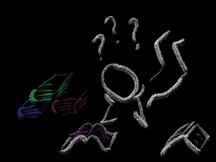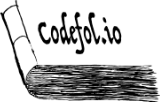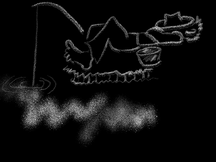
Like most developers who have been developing awhile, I have my favoured ways to keep myself productive. Most are standard: careful use of caffeine, a frequently-curated TODO list, an obvious place to check my priorities, occasional retrospectives and so on.
I also have a few less-common ones that I swear by. That’s normal too. But of course, every developer has their own set. These are mine.
Perhaps they’ll help you? If not, they’ll give you a reason to make fun of me, which is nearly as good.
The Done List
I keep a text file of done tasks day-by-day. I find that the better I keep it up to date, the better I’m usually organising my work. At least, if what I’m doing has a lot of little pieces. Occasionally I’m only working on one big project and then I don’t need this as much.
Here’s an excerpt from it as I write:
2020-02-11 Tue:
RR Initial recording for RR MVC workshop. I do *not* like how the
from-slightly-below upper-body thing looks; the light is bad
but, like, *all* of it is bad. Maybe seated? Or talking-head
video? The very high resolution does me *no* favours, either.
MST More sales-page polish-up; still needs more, but this feels useful
ENT Put together the initial draft of a workshops page; still a bit rough
ENT A/V research; okay, I've definitely veered too far into 'some
day'; short term, maybe order a better mic and maybe not, plus
some technique practice
ENT Canon lens research; maybe eventually I'd like a wide-angle lens,
but probably not yet - even EF-S mount, they're not really cheap
MST Started writing new blog post, practice-flavoured
MST Oh hey, I hadn't added most folks to the Slack channel for
preview blog posts. D'oh!
BOD Caught up on exercise
ORG Checked USGlobalMail, marked tax docs for scanning
--- Breakfast, caffeine
2020-02-10 Monday:
MST Recorded podcast w/ Jason Swett
ENT Lots of video setup, some minor writing
--- Driving lesson was cancelled
--- Breakfast, caffeine
(Weekend: emailed people to get Slack set up w/ blog post preflight folks)
These are little notes to myself. If I were going to write a “what did you do this week?” summary, this would be one of my first places to check — the other would be the ‘completed’ category in OmniFocus, my TODO list.
By having a thing I’m currently doing, I keep myself on something vaguely resembling a useful task. I sometimes write it down before I’m done, and that’s not a bad thing. It means I’m asking myself, “what would be the useful reason to do this thing I’m doing?” If I can’t think of one, it’s generally time to change tasks to something useful. You’ll notice the A/V research above starts useful and gets progressively less useful, so I cut it short when I’ve wandered too far off the point.
I used to have a single ‘Done.txt’ file that I’d keep for months, adding slowly to the top and rolling over annually — or less often. These days I have a weekly plan file with the ‘done’ section at the bottom and various stuff I hope or plan to do this week at the top. That makes it a lot easier to compare what I hoped to do and what I actually got done. But if you decide to do this for yourself, start with a simple ‘Done.txt’ and add to it a little at a time. You don’t need those little “project code”-type tags, either. I’m not even sure I need them or will keep them — they made more sense when I was distinguishing between work for another company and work I did for myself. They’d be a really good idea if you were also juggling different professional requirements or projects, though. But if you do that, you probably already have a better tracking system than I do.
What’s Important?

I always like explaining what I get from a particular practice, and why it fits with my priorities.
This one helps avoid my tendency to lose focus, of course. And my love of game-ified things with points systems. I like ticking off todo lists and putting ‘done’ items where I can see them.
But its less-obvious advantage is this: when I’m working on something, I’m figuring out what it would look like as a ‘done’ item. A good ‘done’ item doesn’t just say what I did. It reminds me why I’m doing it. Some of the items above (video setup, recorded a podcast) are ‘obvious’ in the sense that I don’t further record what they’re for — a podcast is to tell people I exist and what I do, and the video setup is also for audience-building, eventually, as I record video. And some things are overhead (“marked tax docs for scanning”) so I can see how much of that there is.
But for some items like the A/V research, keeping my ‘Done’ file in mind helps focus me while I’m doing it. When I get to ‘someday’ research, I need to course-correct. I’m going to be writing down my conclusions in a few minutes. So: which of these is going to give me a useful answer?
Here’s another reason you might consider tagging your items: you can make it clear what the eventual benefit of them is. I want to do well by the people who have already trusted me by buying (tag: RR, for “Rebuilding Rails.”) I also want to find new buyers and do well by them (tag: MST, for “Mastering Software Technique.”) Sometimes it’s both (tag: ENT, for “Entrepreneur” generally.) If you have a few high-level goals it’s fine to tag them. But more importantly, tagging them makes you think, “how does this help anybody?” And that is probably the most valuable result of the whole business.



Comments